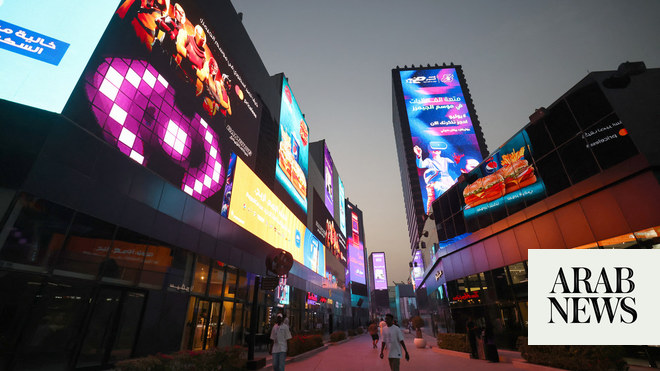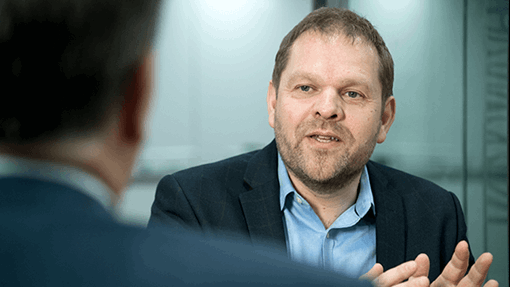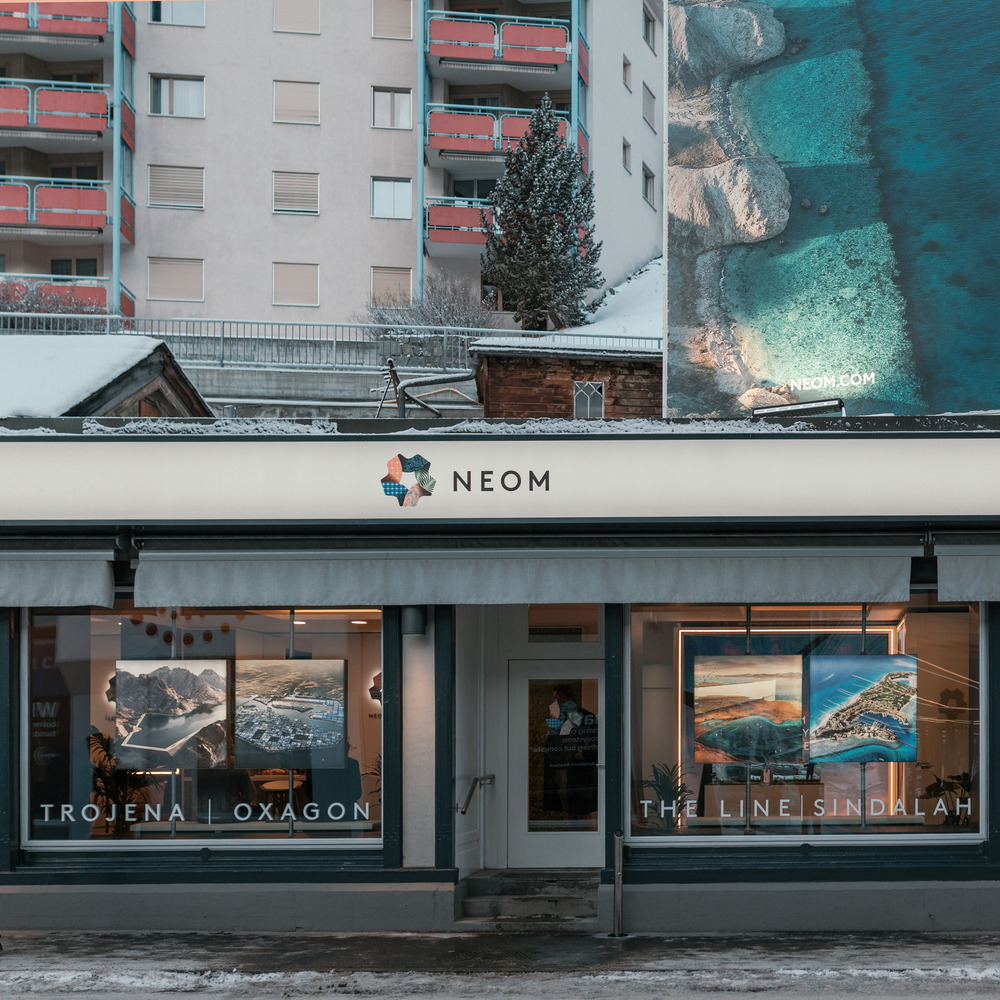Optimism And Adaptability Set Saudi And Gulf Markets Apart In Dealing With Disruption, Says Business Leader

DAVOS: Businesses around the world, and in the Middle East region, are getting better at coping with disruption amid the impact of factors such as geopolitical unrest, the COVID-19 pandemic, supply chain instability, worker shortages and inflation, according to findings released this month in global consulting firm AlixPartners’ Disruption Index.
The company’s EMEA head, Rob Hornby, spoke to Arab News about the index and what it means for the business landscape in the Kingdom, the Middle East region and other emerging markets.
“Headline number one is: Businesses still feel very disrupted. It has gone down (over the past year), but it’s still at high levels compared to what we could consider the old normal prior to 2020,” he said.
While short term pressures have eased, those mentioned in the index that are still giving businesses cause for concern are inflation and interest rates, he said.

Rob Hornby, EMEA chief at AlixPartners. (Supplied)
“What that’s done is, just as they have abated slightly, it has brought into sharp focus the longer term disruptive forces, namely geopolitics, which I think is getting trickier, demographics, technology transition, climate change. These didn’t go away, they just got obscured by crises,” he said.
“These (forces) are less in the control of businesses, they can respond to them, but they can’t really influence them much, so they’re having to devise flexible contingent strategies.
“Businesses, in general, are getting better at dealing with the disruption, they are learning to cope with it.
“I think the Middle East is good at this thing, they’re very adaptable, they’ve had to be flexible and innovative simply to be part of emerging markets. I think these businesses and regions are going to do relatively well.
“For the Gulf region, in particular, disruptions afford at least as much opportunity as they do a threat.
“What they have done so far has been tactically very clever, well-judged and as a consequence I think they’re on a period of growth, not just economically, but also in terms of influence and a place to attract talent, they’re on that path,” he added.
The Kingdom, and the wider region, is also hotbed for development and business growth, as illustrated by the market for mega-projects such as NEOM, and its optimism about the success of said projects is second to none, according to Hornby.

NEOM House at the 2024 World Economic Forum in Davos, Switzerland. Ambition in Middle East countries, including in Saudi Arabia, which manifests itself in mega-projects such as NEOM are a symbol of business confidence and optimism in the face of global disruption. (NEOM)
“I’m always struck when I go to any part of the region by its very positive outlook, they’re generally very well joined-up with government, there’s a lack of cynicism. I think that’s such a big thing,” he said.
“There’s an optimism and a belief that something can be created. I think that’s incredibly powerful in the midst of disruptive forces and unpredictable events.
“The region is extremely well positioned, and businesses in the region have the right kind of mentality, they are ready and they are probably ahead (globally). With the geopolitical reshuffle that’s going on, I think Saudi Arabia in particular is gaining influence,” he added.
Hornby said Saudi Arabia’s young population and its high levels of technology adoption among its youth also make it ideally placed to benefit from the artificial intelligence and tech market wave coming over the next decade.
“There’s talent, the demographics are good,” he said. “I think it’s also becoming aspirational from a lifestyle perspective, I think that’s the big change, particularly in Saudi Arabia. The Middle East is adapting itself and developing itself to have some of those advantages (as a place to live),” he added.
Hornby, on whether Riyadh could become the most attractive hub in the region for businesses ahead of Dubai, said he hoped it would get to a point where business would not have to choose between the two.
“Personally, I think both of them have a bright future,” he said. “There’s enough share of influence and economic success in the region, I think they’d be better competing with the rest of the world, not with each other.
“And we haven’t yet spoken about NEOM. By design, that is a world city in aspiration, which is such a departure for Saudi Arabia,” he said, agreeing that, if completed to plan, it would be “world-leading.”
Riyadh Metro Spurs Residential Property Boom: Knight Frank
RIYADH: The opening of the Riyadh Metro has transformed the Saudi capital’s housing market, with villa prices near s... Read more
Saudi POS Transactions Hold Above $3bn In Mid-October
RIYADH: Saudi Arabia’s point-of-sale transactions remained above the $3 billion mark for the third consecutive week, u... Read more
IMF Expects MENA Inflation To Ease In 2025 And 2026
RIYADH: Lower energy costs will help inflation ease to 12.2 percent this year and 10.3 percent in 2026 across the Middle... Read more
Global ESG Sukuk Market Hits Record $6.5bn In Q3, Set For Strong 2026, Says Fitch
RIYADH: The global market for environmental, social and governance sukuk reached a record $6.5 billion in the third quar... Read more
Saudi Ride-hailing Trips Surge 78% In Q3, Topping 39m
RIYADH: Saudi Arabia’s ride-hailing sector witnessed a major surge during the third quarter of 2025, reaching 39.04 mi... Read more
PIFs EA Deal: Whats Happening Behind The Scenes In Esports?
RIYADH: Just weeks after the conclusion of the second edition of the Esports World Cup, the Saudis were ready for the ne... Read more

